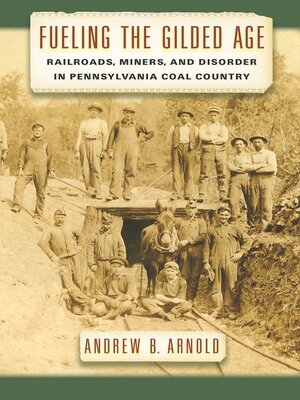Fueling the Gilded Age
ebook ∣ Railroads, Miners, and Disorder in Pennsylvania Coal Country · Culture, Labor, History
By Andrew B. Arnold

Sign up to save your library
With an OverDrive account, you can save your favorite libraries for at-a-glance information about availability. Find out more about OverDrive accounts.
Find this title in Libby, the library reading app by OverDrive.



Search for a digital library with this title
Title found at these libraries:
| Library Name | Distance |
|---|---|
| Loading... |
If the railroads won the Gilded Age, the coal industry lost it. Railroads epitomized modern management, high technology, and vast economies of scale. By comparison, the coal industry was embarrassingly primitive. Miners and operators dug coal, bought it, and sold it in 1900 in the same ways that they had for generations. In the popular imagination, coal miners epitomized anti-modern forces as the so-called "Molly Maguire" terrorists.
Yet the sleekly modern railroads were utterly dependent upon the disorderly coal industry. Railroad managers demanded that coal operators and miners accept the purely subordinate role implied by their status. They refused.
Fueling the Gilded Age shows how disorder in the coal industry disrupted the strategic plans of the railroads. It does so by expertly intertwining the history of two industries—railroads and coal mining—that historians have generally examined from separate vantage points. It shows the surprising connections between railroad management and miner organizing; railroad freight rate structure and coal mine operations; railroad strategy and strictly local legal precedents. It combines social, economic, and institutional approaches to explain the Gilded Age from the perspective of the relative losers of history rather than the winners. It beckons readers to examine the still-unresolved nature of America's national conundrum: how to reconcile the competing demands of national corporations, local businesses, and employees.







